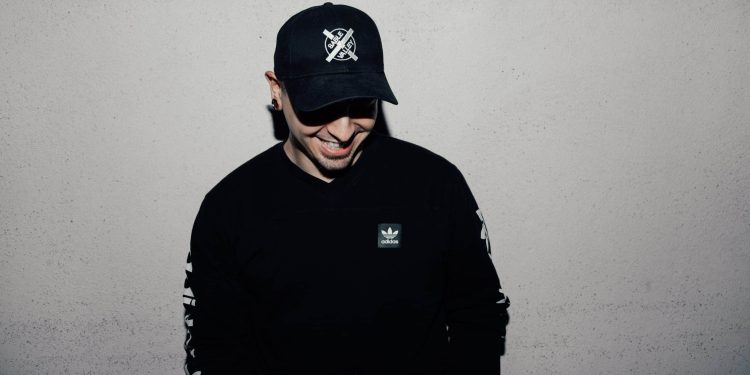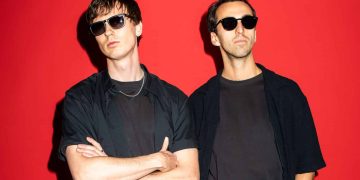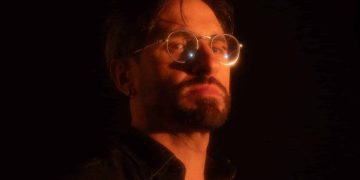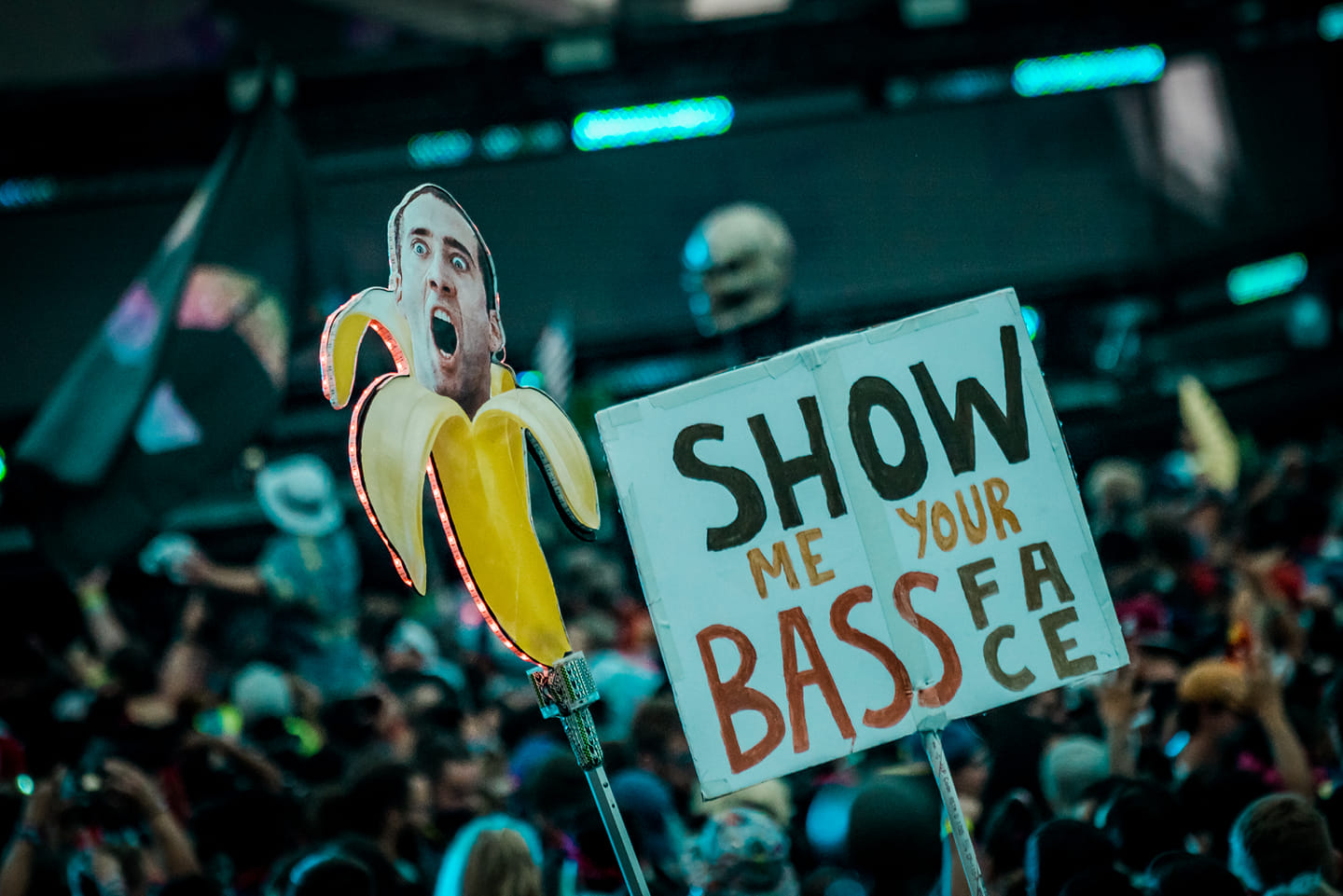Jeff Sorkowitz shares his journey from the legal world to the heart of the underground house music scene and his vision for the future of Short Circuit.
Brooklyn’s Jeff Sorkowitz is swiftly making a name for himself in the underground house music scene, both in the US and internationally. As the founder of the record label Short Circuit, he developed a distinct sound that echoes from the shadowy corners of NYC warehouses to the vibrant stages of Printworks in London and DC-10 in Ibiza. His transition from a corporate attorney to a DJ and producer is as inspiring as it is unconventional, showcasing that passion and dedication can lead to remarkable transformations.
Most recently, Jeff Sorkowitz released a two-track EP, DSL, on Joshwa‘s label, No Bad Fridays, featuring the songs “DSL” and “Honey.” “DSL” has garnered significant interest from the dance music community, adding to his impressive discography, which includes releases on labels like Knee Deep in Sound, Take Notes, and Revival NYC. This growing recognition highlights Jeff’s ability to resonate with fans and DJs alike.
With a slate of innovative releases set for 2024, Jeff Sorkowitz continues to push boundaries. He has garnered consistent support from heavyweights such as Michael Bibi, Jamie Jones, and Loco Dice, with his tracks being played in iconic venues worldwide. Luckily, he had some time to sit down and discuss his beginnings in dance music, the influence of his roots, and his vision for the future of Short Circuit. Read on for an in-depth conversation with a true musical pioneer who is taking his Short Circuit sound from Brooklyn to the world.
Stream EDMID Guest Mix 429 || Jeff Sorkowitz on SoundCloud:
I appreciate you sitting down with us, Jeff! Let’s start from the beginning. How did you first get involved in dance music, and what led you to pursue a career in it?
So, believe it or not, I was actually a corporate attorney prior to doing this. I went to Georgetown Law in DC and got a job at a white-shoe law firm back home in NYC — the whole nine yards. It was cool to kind of live that fancy, high society city life for a bit, but it was definitely a bit unfulfilling. During my time at the firm, I happened to start raving in Brooklyn and just immediately fell in love with the music.
Pretty quickly, I figured out two things: First, if I wanted to do this, I had to go all in right away, as I was already, I’d say, 28 or 29 when I got into this scene; and second, I had a sense that I’d have a knack for making this music. Producing dance music uses the same part of your brain as does being a lawyer. It’s the logical part. In fact, that’s why some of the top DAWs that producers use are called Logic and Reason. So pretty quickly, I took a risk, quit my job, and went all in. It’s not for the faint of heart, but it’s seemed to work out thus far.
Brooklyn has a rich musical history. How has growing up there influenced your sound and style as a DJ and producer?
Well, first of all, as an American, I’m not sure I’d even have been introduced to this type of music were I not from New York City since it’s such an international place. I think in the States, a lot of artists kind of come in from a more mainstream perspective and then slowly find their way to the underground. But for me, I got into this scene by showing up to some of the more underground events in Brooklyn, particularly within the after-hours Romanian minimal scene. So, being from New York has definitely allowed me to jump right into the deep end.
In terms of my production style, like all New Yorkers my age, I grew up on Hot 97 and boom-bap hip-hop. And so, at least at times, I gravitate toward hip-hop sampling, breakbeat sampling, and the like. My track “NYSOM” on Revival is an edit of the Nas classic “New York State of Mind.” On my track “BASS” on Andhera Records, I actually remade Marley Marl’s beat from “Mama Said Knock You Out” by LL Cool J and turned it into a house record. My track “Covered In Sweat” on my label Short Circuit samples “Street Struck” by Big L. So yeah, whether it’s a full edit or one or two more subtle samples, I take a lot of inspiration from New York hip-hop and incorporate what I can into my music. It’s an homage for sure.
Your label, Short Circuit, has developed a distinctive underground sound. What was your vision when you started the label, and how has it evolved?
My first inspiration musically was Enzo Siragusa and the Fuse London sound. I’ve diverged from that a bit, but I still love playing some of those old, deep, dark Fuse records when I can. When I was putting the concept together, I read an interview that Enzo did with fabric in which he mentioned he originally started a party called Circuit in London. And so, I went off that theme, and Short Circuit was born.
Since then, we’ve taken more influence from the modern minimal tech sound. Artists like Jamie Jones and Michael Bibi are big influences there. But I think you can totally hear the early Fuse sound in what we do. In fact, I think some of our artists may not even realize how much that sound laid the groundwork for what we do. It really was a precursor.
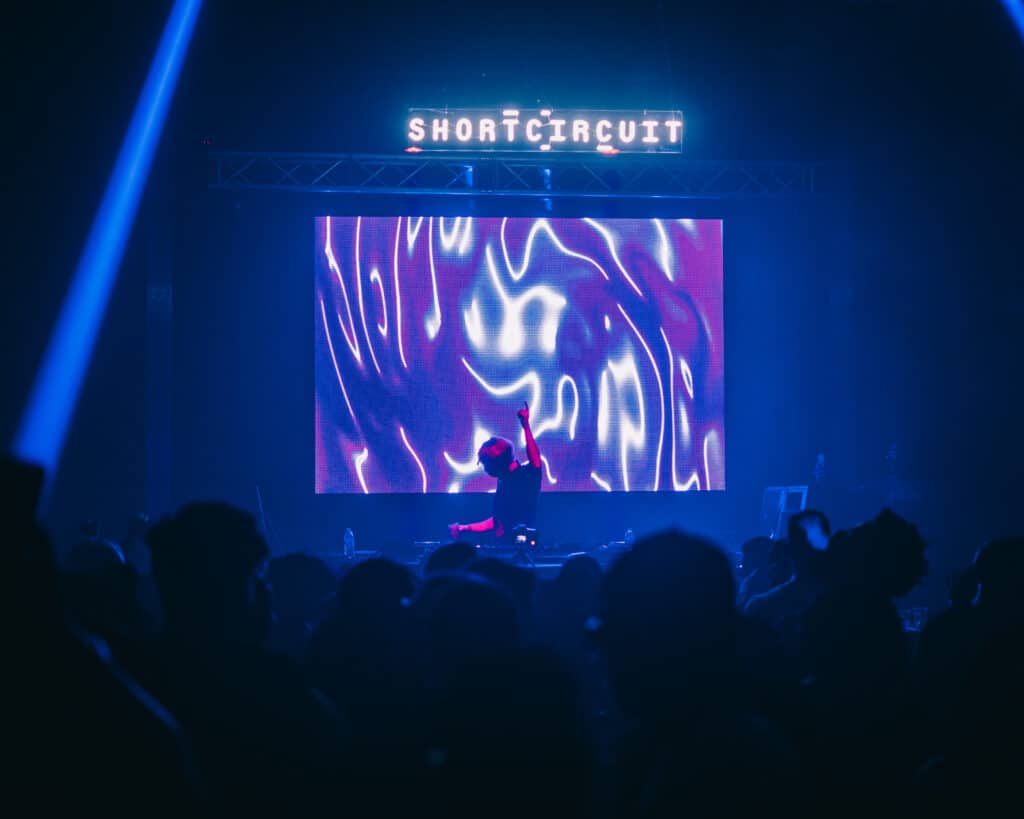
Your tracks have been played at iconic venues like Printworks in London, DC10 in Ibiza, and Space Miami. How does it feel to know your music is being rinsed at such renowned spots?
It’s cool, man, but I’m not going to lie; I’m hungry for the next step. It’s cool seeing my stuff played on the big stages, but I’m ready to be on those stages myself. I’m playing at elrow at the Brooklyn Mirage this weekend and have popped up at places like Factory Town and Lost Beach Club — each of which means a lot to me. So, we’re getting there. But I think at this point, the novelty of seeing big support on my records has kind of worn off, and I’m just ready to be the one who is playing them. Which is not to be ungrateful — don’t get me wrong, I’m so appreciative of all the support I’ve gotten. But it’s time.
Can you tell us how your most recent tune, “DSL,” came about? Hilarious track, by the way.
“DSL” is a bit of a meme track, I’ll admit it. It’s one of those tracks that just happens. I came across a YouTube clip of the Khloe Kardashian interview and just thought it was hysterical and would make a really funny vocal sample. The beat came to me pretty quickly, and it just kind of came together. After sending it around, I got such a positive response. And the buzz has been mental. Every day for months, I get some DM or Twitter tag asking about the track. The people seem to want it. So I’m hyped to finally put it out.
What do you think sets your music apart in the crowded dance music scene? Are there specific elements or influences that you feel define your unique sound?
A few things, but I think more than anything, it’s that I know who I am and who I want to be. I know the stages I want to play on, and I know the DJs I make music for. And so, when you have that, it’s pretty easy to stay focused on your sound. I make music for the terrace at Space. I make music for Sunwaves and DC-10. And so, when you have that guiding light, it’s just about execution.
More specifically, I’ve definitely developed a bit of a signature sound. It’s that dark and sexy kind of vibe. I’m known for a rolling, big low end for sure, as well as a lot of intricate percussion and glitches. And I tend to lean toward sexy female vocals as my signature. For me, the genre that I’m in can be so deep and dark sometimes, but you have to remember the people on the dancefloor are there to have fun. So, even though the beats are dark, I like to keep it more fun and sexy, especially when it comes to vocal selection. One thing I’m always thinking about is whether the girls in the club can get down to it. If I can appeal to a female audience, the guys will follow. It’s nightlife, after all.
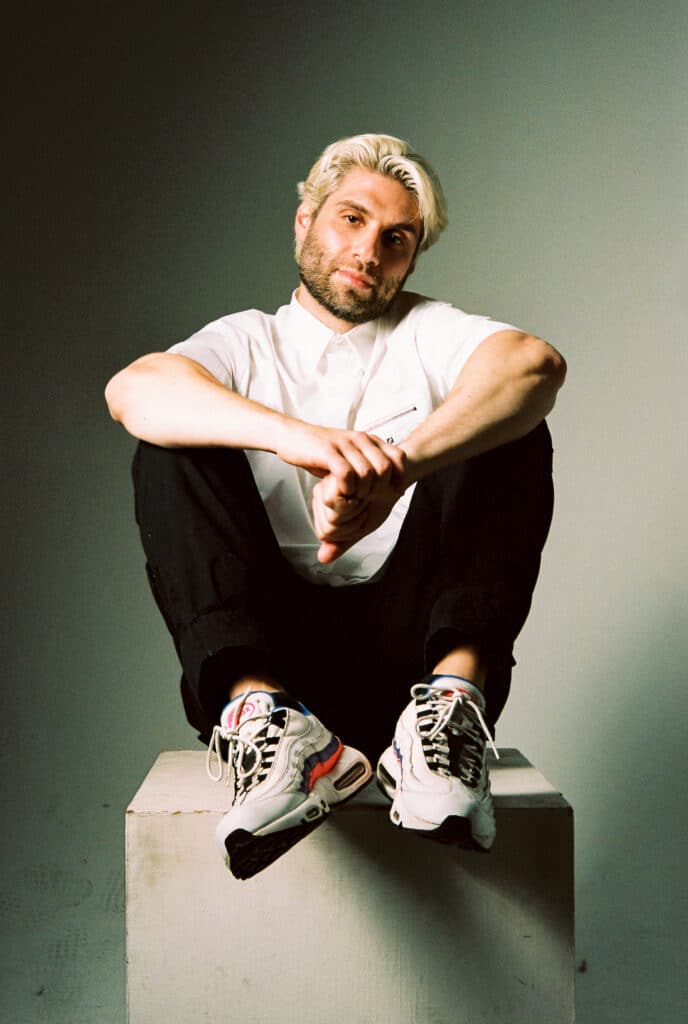
You’re one of the few artists in the USA growing the minimal and deep tech scene here. What aspects of these sounds, which are more familiar in Europe, resonate most with American audiences?
You know, the genre thing is always a bit silly to me, and I think the US/Europe divide is overstated. I do have more of that underground sound, but I also get a lot of support from some of the big tech house headliners in the States. Guys like Mau P, John Summit, Gorgon City, MK, and Duke Dumont have all played my stuff. I’ve even seen a video of ACRAZE playing one of my tracks at a festival somewhere. I’ll admit, when I started down the path of that dark, glitchy minimal-tech style five years ago, I never thought this kind of stuff would play in the States. But it does. And I think I’m proof of that.
For those just starting out, what advice would you give aspiring DJs and producers who want to make a name for themselves in the industry?
If you seriously want to be an artist, I’d say focus on the art first and foremost. So many people want to figure out how to get ahead, but that can be self-serving. It’s super important to ask yourself, “What can I contribute?” and not “How can I get ahead?” So, start from the standpoint of “I am good at X, and I love doing it, and so I’m going to work to try to be the best in the world at it.”
For different artists, that X-factor can be different things. Maybe you have an incredible stage presence like Mochakk. Maybe you play live like KiNK. Maybe you’re a great vinyl DJ like the Apollonia guys. Or maybe you’re a combination of many talents. But for the vast majority of us, your main talent will be your productions.
For most aspiring artists, I’d say forget about the gigs, forget about networking, just get in the studio, stay in the studio, and don’t come out until you’ve forged your own sound. The rest is just noise.
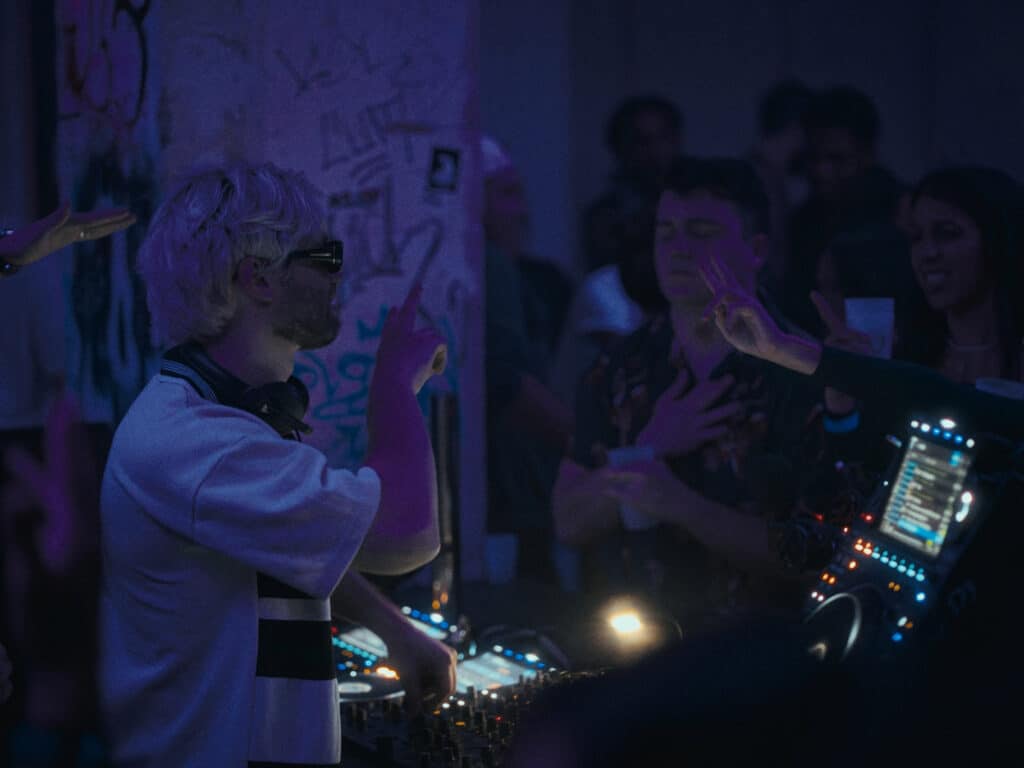
Collaboration is key in music. Are there any artists you’re currently working with or would love to work with in the future?
I’m not sure this qualifies as collaboration, but it’s been super rewarding to sign so many up-and-coming talents to Short Circuit and help them develop their sound and their profiles. Gio Lucca and Braydon Terzo immediately come to mind as two US guys on my label who are making big waves right now. Brendan James from the UK is another label artist I’ve been proud to support. Riley from Liverpool has released with us twice and is now one of the top-selling guys in the genre. So it’s been super cool to help these guys all grow.
Aside from my label, it’s been awesome to release with Take Notes and get to know that crew from Bucharest (label boss Mahony, as well as Brad Brunner, AG Swifty, and EdiP). They have a really good international buzz going and have been so welcoming to me, so I’m excited to keep working with them in the future.
As for some of the bigger artists I’m working with, I would say both Joshwa and Sosa have been as supportive as it gets. Both of those guys have been so kind when it comes to putting me on their labels and their shows, and they’re both just good people. So, I’m definitely looking forward to continuing to work with both of them.
Last but not least, What are your goals for the future, both as an artist and for Short Circuit as a label? Where do you see yourself and the label in the next few years?
Well, as I said before, I definitely feel like I really know who I am and who I want to be. The next step honestly is just to keep the big releases going, keep growing in the studio, and keep playing the right stages. In terms of shows, I’d say debuting in Ibiza and debuting on the Space Terrace are two milestones to hit in the short term.
On the label, I’d love to maintain a balance of supporting our core crew while branching out to some higher-profile artists. In the medium to long term, the goal is to follow in the footsteps of my role models like Jamie Jones, Michael Bibi, Hot Since 82, and Enzo Siragusa. Eventually, I’d love for Short Circuit to obtain an Ibiza residency and establish itself as an international events brand. But there’s a lot of work to do to get there. I’m just trying to enjoy all the milestones along the way.
Follow Jeff Sorkowitz:
Facebook | X | Instagram | SoundCloud



